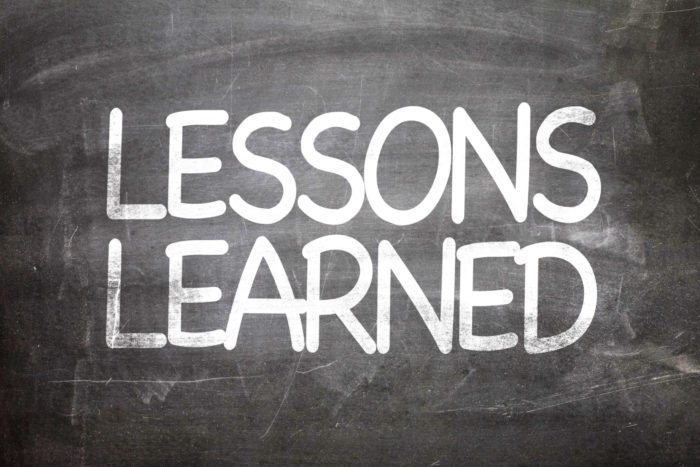The Importance of Self-Acceptance & 4 Ways to Achieve It

Here are ten everyday habits that have been proven, in study after study, to make people happier. As you read the list, think about how often you practice each one:
- Giving: doing things for others
- Relating: connecting with people
- Exercising: taking care of your body
- Appreciating: noticing the world around
- Trying out: continuing to learn new things
- Direction: having goals to look forward to
- Resilience: finding ways to bounce back
- Emotion: taking a positive approach
- Self-acceptance: being comfortable with who you are
- Meaning: feeling part of something bigger
A charity called Action for Happiness, in collaboration with another organization, Do Something Different, surveyed 5,000 people to determine how many people practice each of these habits on a regular basis.
Interestingly, in the sample of people surveyed, they found that one of the habits that makes the most powerful contribution to happiness was practiced the least:
Self-Acceptance
Self-acceptance can be described as simply liking yourself. It requires forgiving yourself for your own mistakes and having compassion for yourself. Knowing who you are, your own strengths and weakness, and feeling deeply that, after it’s all added up, you are good enough.
In my 20 years of practicing psychology, two things have always been very clear to me. First, self-acceptance, or self-love, is not only a primary building block for happiness, but it’s also a requirement. And second, the huge majority of people who don’t have self-acceptance lack it for exactly one reason: they don’t know themselves.
And you can’t like and fully accept someone who you do not know.
In my experience, I’ve seen that the majority of people actually would like themselves, if they could actually see the full picture of who they are. But if your self-view is distorted, shallow or missing big pieces, then you are missing not only self-knowledge but also the opportunity for self-acceptance, the foundation for happiness.
Self-knowledge starts in childhood. Lucky children who are raised by parents who truly see them, notice their personalities, their preferences, their emotions, their needs, strengths, and weaknesses, learn who they are through their parents’ reactions to them. When this lucky child looks into his parents’ eyes, he sees his true self reflected there. Because his parent sees him and understands him realistically, he gets a realistic view of himself, and a true understanding of who he is.
Unfortunately, though, the world is full of parents who are too busy, too depressed, too addicted, too self-absorbed, too overwhelmed or too achievement-focused to actually see their children in this very real, truly meaningful way. Many of these parents are none of the above, but they simply are unaware of the emotions of themselves and their children, and end up emotionally neglecting them for that reason. Whatever the cause, these are families of Childhood Emotional Neglect or CEN.
Many emotionally neglectful parents love their children and are good parents in many ways. But because they miss the “feeling” part of parenting, they simply lack the ability to fully see and know their child. Often, they are not able to do so because their own parents did not see or know them either. Typically, it’s no one’s fault, it just is.
Unfortunately, however, no matter the impediment on the part of the parent, the effect upon the child is the same. He grows up not seeing himself, not knowing himself. So how can he truly like himself? And how can he find true happiness?
3 Questions to Ask Yourself
- Do you feel that you truly know yourself, inside and out?
- Do you like who you are?
- Do you love yourself?
If you’re not sure, or if you answered “No” to any of those three questions, it’s okay. Because this is one impediment to your happiness on which you can make great progress yourself.
And the answer is far simpler than you might think.
The 4 Goals to Reach Self-Acceptance
1. Pay attention to yourself.
- Your likes and dislikes
- What bothers you?
- What makes you angry?
- What is your temperament?
- What are your values?
- What are your talents?
- What are your weaknesses?
2. Identify the things you don’t like about yourself. Are there areas in which you can self-improve? If you can change it to become a better person, set a goal to improve in that area. Self-improvement is likable. And trying is likable, even when you sometimes fail.
3. Have compassion for yourself. You are human, and you have faults and weaknesses, just like every other human being. Learn from every mistake you make, and give yourself credit for trying. Accept that you cannot be perfect.
4. Pay attention to what you feel, and why. Your emotions are the most deeply personal part of who you are. Take responsibility for your feelings. Judge yourself in the big picture, not for one small mistake, weakness or lapse.
Going through life without knowing yourself does plenty of harm to your ability to enjoy life. But since that lack of self-knowledge will chronically hold you back from self-acceptance, and therefore, happiness, it’s triply important to work on the Four Goals above.
After all, you have nothing to lose. And you have self-knowledge, self-love, and happiness to gain.
To learn much more about how Childhood Emotional Neglect happens, how it affects adults and families, and how you can heal, see the books Running On Empty and Running On Empty No More.
Childhood Emotional Neglect is often invisible and unmemorable so it can be hard to know if you grew up with it. To find out Take The Emotional Neglect Test. It’s free!
A version of this article was originally posted on psychcentral.com. It has been republished here with the permission of Psychcentral.
2 Kinds of Lonely Feelings and How to Cope With Them

It was Thanksgiving, twenty-some years ago, and I was in graduate school. I decided not to go home to visit my family that year. Unexpectedly, my close friend and roommate told me that she was going to spend the holiday at her fiancé’s house in another city.
“Come with me,” she said. “It will be fun!” I knew that it would be, but somehow, I just didn’t feel like it. “No, I’ll be okay. I feel like being alone,” I assured her.
The morning of Thanksgiving, I got up in an empty house, and instantly knew I had made a mistake. The house felt empty, and so did I. I walked into the empty kitchen, and filled an empty cup with coffee. I sat down with an empty thud, and stared down at the empty table.
Thus began one of the loneliest days of my life.
Almost everyone feels lonely sometimes. It’s an unavoidable part of the human condition. Few are so surrounded by people at all times that they never feel left on their own.
But it does seem that loneliness is becoming a serious problem that threatens us all. New research from the American Psychological Association has established that far more people are living alone than was true in the past. New studies also show that loneliness can significantly harm your health, and decrease the length of your life.
This new research suggests that we should begin to pay more attention to the spread of “alone.” We need to take a closer look at “alone,” and “lonely.” What do they mean? How do they feel? Can we prevent ourselves from experiencing them?
First I would like to assert this one vital point: You needn’t be alone to be lonely. And you can easily be alone, and not be lonely. In other words, “lonely” is not a state, it’s a state of mind. Actually, it’s a feeling; a feeling that visits some folks more than others.
The 2 Kinds of Loneliness
1. The kind you feel when you are actually alone. This “alone” is situational. It happens when you acutely recognize that there are no people with you. You may feel this when, for example, you weren’t invited to a party, or you just moved and haven’t made any friends yet, or are sitting at home alone on a Saturday night. This alone is painful, and difficult to tolerate. But it goes away when people arrive.
2. The kind that’s more lonesome than being alone. You can feel this kind of loneliness anywhere, even when surrounded by people. This “lonely” can happen when you are actually alone. But it can also happen when you are in the company of people who genuinely love and care about you. This type of loneliness can follow you wherever you go, and it often does. This loneliness can come at any time, under any circumstances. In fact, it may be so woven into the fabric of your life that you feel it all the time. It’s a feeling that can become a part of your everyday experience of yourself and your life.
This kind of loneliness comes from your childhood. It comes from growing up in a household where the deepest, most personal expression of who you are, your feelings, are ignored or squelched by your parents (Childhood Emotional Neglect, or CEN).
Having your feelings ignored or discouraged while your brain is developing sends you a deeply-felt, never-understood message:
You are alone in this world.
This is one of the powerful messages of Childhood Emotional Neglect. And it does not leave you simply because you grow up. It stays there, visiting at will, and often when you least expect it.
The Solution to the Loneliest Lonely
The amazing thing about CEN is that its solution is the exact opposite of its cause.
As a child, your emotions were squelched or regarded as “nothing.” So now, you must encourage your own feelings, and make a choice to treat them as “something.”
Your walled off emotions are keeping you walled off from the people who could be occupying your heart and mind right now. Your walled off feelings represent your true self, and they have waited for you long enough.
When you begin to pay attention to them, you are paying attention to your true self. When you listen to them and take them seriously, you are listening to yourself, and taking yourself seriously.
Once you become aware of your CEN, and how it’s affecting you, you can begin to use your emotions in a way that connects you to people. It can literally change the way you feel inside, and the way you live your life.
You can begin by putting words to all of the emotions that go into “lonely” for you. Here is what I felt that day, some 20-odd years ago:
Sad
Singular
Rejected
Empty
Lost
Isolated
Bereft
Unloved
Uncared-for
On my own
On the outside
I now understand that I wasn’t rejected by others that day. No. I was rejecting myself. I now know that taking down the wall that your child self built is one of the most important things you can do in your life. And beginning to use your emotions to connect with others in a new way is the icing on the cake.
It does take work and perseverance, but it will change you for the better in significant ways. You can defeat your Type 2 Lonely. You can take this on, and win, I assure you.
On your mark. Get set. Go.
Childhood Emotional Neglect is often invisible, so it can be hard to know if you have it. To learn more, Take The Childhood Emotional Neglect Test. It’s free.
To learn more about how to use your emotions in a new way to connect with the central people in your life, see my new book, Running on Empty No More: Transform Your Relationships With Your Partner, Your Parents & Your Children.
A version of this article was initially posted on psychcentral.com. It has been reproduced here with the permission of psychcentral.
The Painful Education of the Emotionally Neglected Child: 10 Harmful Lessons Learned

Growing up in an emotionally neglectful household takes its toll on you.
When, as a child, no one notices enough what you are feeling or when you need emotional support, you receive covert messages that are never stated outright, but which will nevertheless guide your life going forward.
Silent, unintended, usually invisible, these messages take root early and well. As you go through adolescence, they undermine the self-confidence and self-knowledge you should be gathering.
As you grow into adulthood, they prevent you from making the choices that are right for you. As you form relationships and fall in love, they prevent you from valuing yourself. As you have children and raise them, they weigh you down and leave you feeling mystified about what you are missing and why.
The only way to reduce their power over you is to realize the signs you were emotionally neglected as a child and understand they are there and how you got them. And to make a conscious choice to stop letting them hold you back and push you down.
10 Painful Lessons Childhood Emotional Neglect Teaches You
1. It’s not good to be too happy or too sad.
As a child, you naturally had intense feelings, as this is how all children are wired. Exuberant one moment, intensely frustrated the next, you needed someone to teach you how to understand and manage your emotions.
But what you got instead was a covert message that your emotions were excessive. What you learned was to dampen your feelings, not the skills you needed to manage them.
2. You are overly sensitive.
As a child, you naturally felt upset when things upset you. You naturally felt angry when you were hurt. What you needed was to have your upset feelings soothed by a loving parent so that you could learn how to soothe yourself.
But what you got was a message that your feelings were a weakness. What you learned was to judge yourself for having them.
3. Your needs and preferences are irrelevant.
When no one asked you enough, you learned instead that you don’t.
4. Talking about a problem will unnecessarily burden other people.
Growing up, you had problems with school, with siblings and with friends. What you needed was to know that you could talk to a parent.
Instead, you knew that they, for whatever reason, could not handle it. What you learned was that others couldn’t handle your problems, and so you’d best keep it to yourself.
5. Crying is a weakness.
All humans cry, and for a reason. Crying is a way to release and process your emotions. As a child, you cried sometimes (maybe often). What you needed was for this to be okay.
Instead, your family didn’t know that crying has a purpose, so they ignored your tears or shamed you for having them. Perhaps they never showed tears themselves. You learned that crying is negative and should be avoided, one of the biggest signs you were neglected as a child.
6. Others will judge you for showing your feelings.
Were you judged for showing feelings in your childhood home? This powerful message has been carried forth with you. “Hide your emotions from others” is the message, “or others will think less of you.” Or, worse, they will use your feelings against you.
7. Anger is a negative emotion and should be avoided.
As a child, of course you often felt angry, as this feeling is a natural part of life. As a child, what you needed was help to name, understand and manage your anger.
Perhaps instead your anger was squelched or overwhelmed by another’s. Maybe you were punished for showing it. What you learned was that anger is bad and that you should suppress it.
8. Relying on another is setting yourself up for disappointment.
Children need help, period. So do adolescents and adults. As a child, you needed support, direction, suggestions, and assistance. But you could see that your parents were not up to that.
What you learned was that it is best not to ask for help in general because you are setting yourself up for a letdown.
9. Others are not interested in what you have to say.
What you learned is that your questions and words are not valuable and that you should keep them to yourself.
10. You are alone in the world.
As a child, you needed to feel that an adult had your back; that no matter what happened, there was support and help for you. Instead, when you needed something you discovered that your adult(s) were busy, overwhelmed or not aware. What you learned was that you were all alone.
The Truth
These lessons all seem so real and so true when you grow up receiving them in such a subliminal, global way. But do not forget that they are merely lessons of your family, not truths. The fact that you learned them does not make them right.
The truth is…
Strong feelings connect us to ourselves and each other, and being able to have them is a sign of health and strength.
Knowing your own needs and preferences and expressing them is a key to living a happy, fulfilled life.
Talking about your problems helps you solve them.
Crying is a healthy way of coping.
Letting others see your feelings helps them know you better.
Anger is an important message from your body that empowers you.
Mutual dependence is a form of teamwork that makes you stronger.
What you have to say is important, and you should say it.
You are human. You are connected, you are important.
You are not, in fact, by any stretch, alone.
To learn more about Childhood Emotional Neglect, sign up to watch my CEN Breakthrough Video Series on YouTube!
Since CEN is so subliminal and unmemorable, it can be hard to know if you have it. To find out if CEN may be getting in the way of your happiness, health, and well-being, Sign Up to Take the Childhood Emotional Neglect Questionnaire. It’s free.
A version of this article originally appeared on YourTango. It has been reproduced here with the permission of YourTango.
My Dear Black Sheep, 3 Things You Must Know

I’ve met many lovely people who have been excluded by their families. When I see them in my therapy office I help them figure out why they have been excluded, and it is almost never for the reasons they have always assumed.
In a recent post called Black Sheep, I talked about some common myths, and how excluded folks, or Black Sheep, are usually not what they appear to be.
Surprisingly, they are invariably a simple product of family dynamics. In other words, being excluded typically has little or nothing to do with the person being excluded. You’ve always thought it’s you, and it is not.
My Dear Black Sheep
Since I will probably never be able to see you in my office, here are 3 important things that I want you to know:
First, Research Supports You
First, let’s talk about the power of exclusion. We all tend to underestimate it.
But a study by O’Reilly, Robinson, and Berdahl, 2014 proved otherwise. These researchers compared the effects of workplace ostracism (being excluded or ignored) with bullying.
They found that office workers view ostracizing a co-worker as more socially acceptable than bullying him or her. But surprisingly, they found that ostracized workers suffer more than bullied ones. In fact, ostracized workers are actually more likely to leave their jobs than are their bullied colleagues.
If the exclusion is this harmful to adults in their workplace, imagine how it affects a vulnerable child in his family, during the time that his identity is developing.
Imagine how it affected you.
Second, Self-Fulfilling Prophecy Affects You
A self-fulfilling prophecy is a belief that causes itself to come true. This happens because our belief influences our actions to the point that we bring the belief alive. Even when the belief is false, we make it come true simply by believing in it.
Self-fulfilling prophecy has a huge body of research supporting it, going all the way back to the 1950s. For example, it’s been scientifically proven that children whose teachers believe they are smarter than they are actually performed at a higher level.
The teachers treat the children as more intelligent, and the children respond to that treatment by making it so.
Imagine how this process works in the family of a Black Sheep.
You are a child, and your family believes that you are strange, or difficult, or different or inferior. So they treat you that way. You, an innocent child, respond to the way that you are being treated. You may start to act like you are strange, difficult, different or inferior. If this goes on long enough, you may become who your family originally believed that you were. And then you see yourself that way.
The Black Sheep family dynamic is a form of Childhood Emotional Neglect or CEN. When your parents don’t see or value who you really are, it is very difficult to see or value your true self.
So now it may be hard for you to know the truth. Who are you really? Who would you be if not for all of the distorted messages you have received from the people who should love you the most?
Here is good news for you. Now that you know about Self-Fulfilling Prophecy, you can take control of it. Once you recognize the parts of yourself that were literally “projected” on you by your family, you can be freed up to either embrace those pieces of yourself or let them go.
A new journey begins which will allow you to define yourself, by yourself and for yourself. Free of judgment and prophecy.
And Third, You Were Chosen
You were chosen by your parents or your siblings for a reason. Perhaps you are the brightest in the family; perhaps you are the strongest. Perhaps you are the sweetest or most sensitive. Perhaps you’re artistic or have a different temperament or personality or appearance from the rest of your family.
Perhaps you were born at a certain time, a certain gender, or in a birth order that affected how your parents and siblings regarded you.
Perhaps you will never know why you were chosen.
But what is important for you to know is that you didn’t ask for this, and it’s not your fault. Your family does not see the real you. They don’t understand that your weakness in their eyes is actually your strength.
So embrace your difference, for it is your power.
And please know this:
You were chosen for a reason.
You are real.
You are valid.
You matter.
To learn more about Childhood Emotional Neglect, how it affects children and adults, and how to learn to see and value your true self, see the book, Running on Empty. To understand how Childhood Emotional Neglect effects play out in your adult relationships with your partner, your parents and your children, see the book Running On Empty No More: Transform Your Relationships.
A version of this article originally appeared on Psychcentral.com. It has been republished here with the permission of Psychcentral.
Help For the Emotionally Neglected at Thanksgiving

It’s that time again, the holidays are coming. First comes Thanksgiving so let’s start preparing now.
Since Thanksgiving is generally a family holiday, you may be excited about Thanksgiving or not-so-much. And that is likely determined by the type of family you have.
How do you feel when you get together with your family? Is it enriching and enjoyable? Or is it more draining and challenging? Or is your family experience somewhere in between?
If your family has any kind of abuse, grief, or addiction in it, for example, this family-focused holiday may be extra challenging for you.
There is one very large group of folks who either look forward to Thanksgiving and then find themselves disappointed every year, or have learned to dread it because of its draining, disheartening nature.
This large group of people struggles to identify why Thanksgiving is disappointing each year. And the answer is not anything that happens at Thanksgiving dinner. It is actually because of what does not happen when their family gets together.
What’s missing is a real, substantial emotional connection.
Childhood Emotional Neglect or CEN: Growing up with CEN is essentially growing up in a family that has “emotion blindness.” These families are not able to see and respond to the feelings of the children enough. They may avoid meaningful discussion and tamp down or negate strong feelings instead of responding in a helpful, instructive, and supportive way to emotions.
CEN Families at Thanksgiving
- In a CEN family’s Thanksgiving gathering, things may appear to be normal and fine. But there is a sense that something is missing. Some vital ingredient that’s hard to name.
- CEN families avoid talking about the most important things: things that are conflictual, painful, or difficult. If a topic like that comes up it may feel awkward or somehow wrong or unacceptable. This can make your holiday either awkward, superficial, or boring.
- Thanksgiving, a holiday in which you are supposed to be thankful for the good things in your life, can end up actually emphasizing what’s missing. So if you do not have a healthy family, you are destined to end up disappointed.
Recent research studies have found that feeling gratitude makes people happy. So Thanksgiving is a special opportunity to focus on what you are grateful for.
And there is a silver lining to growing up with Childhood Emotional Neglect. Being raised in a family that ignores your emotions forces you to adapt. You learn some life skills that will be useful throughout your lifetime.
So now, at Thanksgiving, you have some valuable things in your life to be thankful for. And when you do, I hope it will help to bring you some of the happiness that you deserve this holiday season.
5 Things You Can Be Thankful For When You Have Childhood Emotional Neglect
- Your inner guide for directing you. Having grown up without adequate emotional attention and personalized guidance from your parents, you had to learn how to make choices for yourself without much outside help. So you learned. Making decisions may be a struggle for you now. But on some level, somehow, you often do make good choices. I have seen that most CEN people, even if they agonize over personal decisions, even if they make some mistakes in their choices, generally have good judgment and common sense. And a good gut sense, if only they would listen to their gut more. Your helpful inner guide is something to be thankful for.
- Your ability to do what needs to be done. As a child, you couldn’t be confident that your parents would provide you with help when you needed it. Now as an adult you are remarkably capable. You learned how to take care of things as a child and you are still good at it. These useful life skills are something to be thankful for.
- Your willingness to help others. By overlooking your feelings as they raised you your parents inadvertently taught you how to overlook your own feelings and needs as an adult. This leaves you too focused on other people and their feelings and needs. But there is a silver lining to this. You are there to help others, and you likely ask for little back. Other people can see your good heart and they appreciate how giving and reliable you are. You can be thankful for possessing this lovable quality.
- Your parents for the things they did give you. If your parents were abusive or extremely neglectful to you then you do not owe them any thanks. But perhaps they struggled to provide you with life’s necessities; perhaps they loved you in the only way they could. Perhaps they gave you more than they had in their own childhoods. You can be thankful for what they did give you while also recognizing what they did not.
- One person in your life who has understood and supported you. Was one of your parents more emotionally responsive than the other? Was there a teacher or friend who showed you understanding or a friend who validated you? A therapist who has guided you through some painful moments or transitions? You can feel thankful for this one special person who offered you something vital when you needed it.
Think about whether there might be one person in your family you can connect with more; it may be a sibling, a parent, aunt, uncle, cousin, or in-law. Just one person you can perhaps share your CEN experience with. You can ask them to read this blog or the Running On Empty books. It helps enormously to have an understanding person in your family.
Wondering if this blog applies to you? Childhood Emotional Neglect is often invisible and unmemorable when it happens in childhood so, as an adult, it can be difficult to know. To find out, Take the Emotional Neglect Test. It’s free.
Yes, Childhood Emotional Neglect left its mark on you. Yes, it will color your holidays gray if you let it. But there is a silver lining to your CEN. And now, at Thanksgiving, you can set your sights on healing and give yourself the emotional attention you never got. You are worth it.
Warmest wishes for a safe and happy Thanksgiving from me to you.
To learn more about Childhood Emotional Neglect, see my first book Running on Empty.
Coping With Childhood Emotional Neglect: Thanksgiving Survival Tips

Childhood Emotional Neglect or CEN has a way of making family holidays like Thanksgiving, which should feel welcoming, loving and warm, fall short.
It’s the invisible force that just slightly subdues the welcome, cools the warmth, and quashes the love. It’s the background of your family picture which no one sees. It’s the gray fog that lingers round the family, making it impossible to truly see each other.
The members of an emotionally neglectful family walk through each and every holiday with a vague feeling of disappointment and discontent.
Childhood Emotional Neglect (CEN) happens when you grow up in a family that does not “see” the emotions of its members. In the CEN family, feelings are treated as if they are irrelevant or even burdensome. Children in these families learn to ignore and hide their own feelings.
If this is your family, how do you take care of yourself so that you can enjoy Thanksgiving?
5 CEN Tips for Thanksgiving
- Have a support person: Make sure that you have one person with you who understands Childhood Emotional Neglect, and knows what you have been through. A spouse, sibling or trusted friend can give you great strength at the moments you need it most. Meeting your support person’s understanding eyes across the room is validating and grounding.
- Keep your expectations realistic: Our human brains are naturally wired to expect nurturance and care from our families of origin. But in the emotionally neglectful family, if you let yourself fully embrace those expectations, you can be left feeling twice as empty. Try to adjust your expectations before you go, so that you’ll be ready. It’s better to be pleasantly surprised than disappointed.
- Be aware of your feelings: During the course of the day, you may experience a variety of different emotions, like frustration, emptiness, boredom, anger or disappointment to name a few. Pay attention to these feelings as they arise. Accept and name them, and let yourself have them. You are feeling those emotions for a reason, and you can use them later to help you understand how your family affects you.
- Be thankful for your strength: Growing up with Emotional Neglect has made you uncommonly strong. As an emotionally neglected person, you have learned to rely on yourself. On this day, focus on the gifts your family has given you, and the positives that have come from growing up as you did. Whether you realize it or not, your Childhood Emotional Neglect taught you how to be independent, capable, and giving. These are things to be thankful for.
- Especially focus on self-care: Get some exercise, wear clothes you feel comfortable and good in. Stay at your Thanksgiving family gathering only as long as you are OK, and not one minute longer. This is a day when it’s extra important to put yourself first.
Emotional Neglect passes through the generations unseen and unnoticed. Most likely your parents have raised you very much the same as they were raised themselves.
For your healing, it’s important to acknowledge everything you didn’t get from your family. On this day, work on accepting what you didn’t get, what you did get, and why. And realize that your parents cannot give you what they do not have themselves.
Remind yourself that everything you got, and everything you didn’t get: It all adds up to who you are now.
And you’re all right.
Childhood Emotional Neglect is invisible and unmemorable, so it can be difficult to know if you have it. To find out Take the Emotional Neglect Test. It’s free.
To learn much more about Emotional Neglect, how it happens how it affects you, see EmotionalNeglect.com and the book, Running on Empty.
A version of this post was originally published on psychcentral.com. It has been reproduced here with the permission of psychcentral.
7 Ways to Face Your Grief and Move Forward

Jared has done everything he can think of to make himself feel better since his father unexpectedly passed away two years ago. But he still feels blah and numb much of the time.
Sandra keeps choosing the same kind of guy over and over; alcoholic, angry, and afraid of commitment.
Claudia is irritable and bitter after her painful divorce. She can’t seem to get back to her old self.
All three of these people are stuck in some way. Each is suffering, each is confused. “Why can’t I get out of this?” they all wonder.
Fortunately for Jared, Sandra and Claudia, there is an answer, and it is the same for each of them. It’s a simple answer, yet it requires them to do something they dread.
Grieve.
Grief gets a bad rap, and in some ways, it should. After all, when does it enter our lives? When we’ve lost someone, or something, important. Grief only appears at times of pain and loss. But grief itself is not pain or loss. Instead, it’s a phase of processing pain and loss.
It’s a very natural human tendency to want to avoid pain. And it takes time to process a loss. This is what makes grieving so universally difficult. The three people described above are all stuck because they are avoiding their grief.
Jared is working hard, but to some extent on the wrong things. He’s trying to make himself feel better. But unfortunately, no amount of sporting events, dates, or successful work projects will help him process his loss and pain. He can only really move past his grief phase by going through it, not around it. This means he must accept his loss and sadness. Jared must allow himself to grieve.
Sandra wants to have the kind of healthy relationship that she sees others enjoy. So she keeps trying, over and over and over. Why does she keep repeating the same pattern? Because she has never grieved the father who left when she was 8 years old. “I don’t care about that jerk,” she’s said all of her life. Sandra is protecting herself with anger, because she doesn’t want to face, or feel, the pain of being abandoned by the man who was supposed to love her the most. Because Sandra isn’t allowing herself to feel, process, and work through her loss, she keeps recreating it. She keeps choosing men who will not really be there for her, and who will eventually abandon her.
Claudia was deeply hurt by her divorce from the man she was married to for 12 years, the father of her children. She was shocked and bereft when he signed those divorce papers. To cope, she has placed her focus on her children and making sure they have a life as close to normal as possible. Surely no one could fault her for this. But what keeps Claudia stuck in her bitterness and anger is not her focus on her children; it’s her failure to focus on herself. She needs to accept, feel, and work through her shock and pain and loss. She needs to grieve.
With all this talk of grief, here’s the good news. If you, like Jared, Sandra or Claudia, feel stuck, you may not actually be. You’re not facing a brick wall after all. You may, instead, be facing a phase. A phase that you can work through, and come out the other side. Yes, you know the solution. You need to grieve.
Seven Tips For Healthy Grieving
- Make an effort to think about who, or what, you’ve lost. This is a way to give yourself a chance to deal with your loss. Choosing to think about your loss is a way to prevent your brain from processing the loss at times when you are not wanting to do so.
- Let yourself feel the pain. The only way to make it go away is to feel it, process it, and go through it.
- Take control of your grief by scheduling it. For example, every day at 5:30 p.m. you will sit in a room alone, think about what you’ve lost, and let yourself feel it. Then you will distract yourself out of it. Force yourself to think about something else, and engage in an activity that will put it back into the background. Go on with your day.
- As you feel the feelings, put them into words. Here are some examples to start with:
I feel sad
I feel hurt
I feel bereft
I feel disappointed
I feel empty
I feel lost
I feel alone
I feel let down
I feel angry
I am mourning
5. Choose a trusted person and share your feelings. Talking with someone about what you’re going through is incredibly helpful.
6. Remind yourself that grief is a process, and it’s not permanent. It’s simply a phase of adjustment that is healthy and necessary.
7. Don’t put a time limit on your grief. Everyone’s grief is different, and you can’t rush recovery. It will take as long as it takes. Period.
If you’re an emotional avoider or have a tendency to avoid your feelings in general, you’re at a higher risk of avoiding your grief and getting stuck. A tendency toward emotional avoidance is a sign that you grew up in an emotionally neglectful family. Childhood Emotional Neglect is often invisible and unmemorable so it can be difficult to know if you have it. To find out Take The Emotional Neglect Questionnaire.
To learn much more about Childhood Emotional Neglect, how it happens to the child and how to stop avoiding your feelings see the book, Running on Empty.
A version of this article was originally posted on Psychcentral. It has been republished here with the permission of psychcentral.
Childhood Emotional Neglect: Stage 1 Recovery Worksheet For Therapists and Clients

In my office, as well as my online Childhood Emotional Neglect recovery program, Fuel Up For Life, I have had the privilege of walking hundreds of people through the 5 Stages of CEN recovery. Throughout these experiences, I have realized something remarkable.
I have discovered that the most difficult, painful hurdle in recovering from Childhood Emotional Neglect happens at the very beginning. The stage that seems the easiest, the one most people want to sail through and “get on with it” is the first one. Yet Stage 1 is extremely important. Of the 5 Stages of Recovery from Childhood Emotional Neglect, Stage 1 is not only the building block for all of the others. It’s also the most difficult.
The 3 Parts of Stage 1 of CEN Recovery
- Accept that your parents failed you emotionally as they were raising you.
- Identify the specific ways your parents failed to meet your emotional needs. Did they pretend feelings didn’t exist? Did they punish you for having feelings? Did they treat you exactly like your siblings, even though you were very different? Did they seldom validate or name your feelings? Or did it happen in some other ways?
- How has CEN affected you through your adult life? Has it left you feeling empty, disconnected, or alone? Are you disconnected from your own feelings? How has that affected you?
Participants in my online CEN recovery program continually want to rush through the first module which is dedicated to walking them through Stage 1 in a deep, detailed, and meaningful way. And the CEN clients I see in my office often try to skip over this very important foundation.
Therapists also find Stage 1 challenging with their clients. They constantly ask me for help with getting their clients to do the work of fully accepting their CEN.
Realizing how your parents failed you emotionally and facing how it’s undermined your happiness, connection and sense of self is admittedly painful. But I have found that gliding through Stage 1 too quickly backfires later on, undermining the steps you must take to heal.
When you think about it, it does make sense. It’s hard to break down the wall that blocks your emotions when you’re not fully sure that a wall is there or why it might be there. And it makes it much easier to give yourself what you never got if you’re able to fully see that none of this is your fault.
When a CEN therapist emailed and said, “Can you please create a worksheet to help us therapists get our clients to see and accept how their parents failed to validate them? We need help with Stage 1,” I realized I needed to do just that.
If you are a CEN therapist here are 8 questions to use with your clients. I recommend that instead of asking these questions in the sessions, you send them home with your client and ask him or her to think about it and write down answers and bring them to the session.
If you are a CEN person who is not in therapy, you can use this worksheet to help you accomplish Stage 1 in a way that is deep, meaningful and effective. This will set you up for the 4 stages to come.
CEN Worksheet For Stage 1
- Describe a typical day in your childhood in as much detail as possible. Choose any age you’d like. As you go through the day, make a special point to think about what feelings you had at the time.
- Tell a story about a time your parents supported you through a difficult time. How did they support you?
- Describe a time when you felt one or both of your parents truly understood you. Were you surprised at the time?
- Did one or both of your parents use emotion words like “sad,” “angry,” “hurt,” or “afraid,” for example, very often or at all?
- Can you remember a time when you really needed your parents, and they were not there for you? Note: The reason is irrelevant in this exercise.
- Go through the Emotions List in the back of Running On Empty with your own childhood in mind and highlight the words that seem to fit it. Do not overthink it. Rely on your hand to know which words to highlight. You can go back and try to process it later.
- Read through the 10 Characteristics of the CEN Adult in the book Running On Empty: Overcome Your Childhood Emotional Neglect, Chapter 3: The Neglected Child, All Grown Up. Write down a list of the ones that you identify with as a problem in your own life.
- Now go back through your answers to Questions 1-6 and try to connect your childhood memories, experiences and feelings with the CEN struggles you identified in your answers to Question 7. Can you connect them?
My Number 1 Recommendation For Accomplishing Step 1
For CEN Therapists: Be aware that your CEN clients will naturally want to rush through Step 1. It is your responsibility to slow them down and support them to do the work. Support and challenge your client on this, and do not let them off the hook.
For CEN People: Be aware that this worksheet is not a simple solution of any kind. Step 1 often happens in layers, and you may need to revisit it over and over. Many of the members of my online program return to Module 1 over and over as they go through the other steps.
Take your time with these 8 steps. Look for a therapist on the Find A CEN Therapist List if you get stuck and/or could use some guidance and support.
My Number 1 recommendation for your first step in CEN recovery, whether you are a therapist or a sufferer, is this:
Do not rush.
Take your time.
Put your heart into this and do your best to face the pain.
You are worth it.
Download a PDF of the CEN Stage 1 Recovery Worksheet Here
A version of this article was first published on psychcentral.com. It has been reproduced here with the permission of the author.
5 Reasons Forgiveness is Not a Good Way to Heal

For philosophers and clergy alike, the message is resoundingly clear: Forgive those who have hurt you, because holding on to anger is destructive. Case in point, see the small sampling of widespread broadcasting of such messages below.
Forgiveness is the final form of love
-Reinhold Niebuhr
To forgive is to set a prisoner free, and to realize that the prisoner was you
-Lewis B. Smedes
To err is human; to forgive, divine
-Alexander Pope
Forgiveness is often offered as a powerful solution; as an agent to not only help you heal from painful events but also allow you to move forward.
The general idea is that holding onto anger can make you bitter and hold you back from healing from harm that someone has done you. But the problem is that there are several serious problems with trying to use forgiveness as a solution.
Let’s first look at why it doesn’t work. Then, we will discuss a much better solution.
5 Reasons Forgiveness Does Not Work
- In today’s world, we generally seek to avoid emotions that are unpleasant, like anger and hurt. We naturally believe that we should escape “bad” feelings as soon as possible. Forgive and move on is a logical way to achieve this. However, emotions are not logical, and so this strategy does not work.
- Glossing over unpleasant feelings not only doesn’t work, but it also does not make use of the emotion. For example, hurt and anger carry vital messages from your body to your brain. The message from hurt is, “take care,” and the message from anger is “watch out, and protect yourself.” Before you forgive anyone, it’s vital that you listen to these messages, and heed them.
- True forgiveness is a wonderful thing, indeed. It happens after a process has taken place. This process involves accountability from the person who harmed you. If the person you’re forgiving has not acknowledged his or her harmful act and asked for your forgiveness, then you have not held the individual accountable.
- Forgiving those who have not taken responsibility for their actions falls short of holding them accountable. The offenders will be essentially let off the hook. This robs them of the opportunity to learn from their mistakes.
- Forgiving someone who has not owned up to their actions makes you unnecessarily vulnerable. John F. Kennedy said, “Forgive your enemies, but never forget their names.” In this quote lies a warning that forgiveness can leave you vulnerable to re-victimization. Without your anger and hurt to warn and remind you to protect yourself – and if the person who harmed you has not been held accountable – you are opening yourself up to being harmed again.
Quotes and articles about forgiveness present it as a solution to painful situations.
But forgiveness is not a solution. It’s a process.
The Process of True Forgiveness
- The offender realizes he (or she) has hurt you, perhaps because you have told him; perhaps because he notices your anger or hurt.
- A discussion and/or acknowledgment takes place, in which the offender takes accountability for her actions.
- The offender genuinely feels guilt or remorse and apologizes for his hurtful actions.
- An emotional meeting of the minds takes place in which you feel the remorse and accountability of the offender.
- This emotional meeting of the minds allows you to truly forgive your offender. All is not forgotten, but a mutual understanding has relieved you both.
In the process of true forgiveness, the relationship is changed forever, sometimes in a good way. Many who go through these steps together end up feeling more connected and closer than they were before the offense took place.
When There is No Accountability
Of course, it is true that in many of life’s situations the offender does not notice that she’s hurt you or does not appear to care. There is no accountability, no acknowledgment, no apology. So, sadly, there can be no meeting of the minds. These are some of life’s most difficult and painful experiences.
Here the solution becomes not about forgiveness, but about balance and self-care. If you allow your hurt and anger to rule you, you will be in danger of becoming bitter or vengeful.
Instead, please use your anger and hurt to build and enforce boundaries that will protect you from the other person. Soothe and balance your painful feelings with attention to your own health and recovery. Talk to those who care about you, eat well, and rest. Pay attention to your feelings and manage them.
And always keep in your mind the most healthy and powerful guiding principle for one who has been unjustly harmed and left with no accountability:
The best revenge is living well.
Nothing could be more true.
To learn more about emotions, how they are useful, and how to manage them in relationships, see the books National Bestseller Running on Empty: Overcome Your Childhood Emotional Neglect and Running On Empty No More: Transform Your Relationships.
A version of this article originally appeared on psychcentral.com. It has been republished here with the permission of the author.
53 Ways to Describe Hurt Feelings

Childhood Emotional Neglect: Happens when your parents do not address, validate, or talk about emotions enough as they raise you.
Growing up with your emotions ignored has some very specific effects on your entire adult life. Just as Childhood Emotional Neglect is a lack of emotional attention, one of its most harmful effects is also a lack of something: emotional skills and knowledge.
In my work with hundreds of CEN adults, I find, more specifically, that an almost inevitable consequence of growing up this way is a low emotional vocabulary. Many CEN people have few words to describe feelings. Some apply the same generic word to all of their feelings (like “stress,” “depressed,” or “anxious,” for example); some do not use any emotion words at all, and others use the wrong words altogether.
When emotions are seldom discussed in your childhood it is difficult to absorb and learn the thousands of words in the English language that describe emotions.
When we need to communicate a feeling we are having to another person, or even simply name it for ourselves, it is vital to be able to label it in a subtle and accurate way.
Imagine saying, “I felt hurt,” to your wife after she and her friends teased you relentlessly about your new white sneakers. Now imagine saying, “I felt chastised.” The difference may seem small, but it is significant.
The labels you put on your feelings matter.
“Hurt”
There is no way to be alive and not get hurt. We have all been there. When someone says something hurtful to you, how do you name the feeling for yourself, and how do you express it to others?
Yes, you can say, “I’m hurt.” Or you can say exactly how you feel and this will make it far more likely that you will be — and feel — understood.
Next time you feel something painful, look through this list to see which word seems to best describe what you are feeling.
Find hundreds of additional emotion words in the extensive Emotion Words List in the back of the book Running On Empty: Overcome Your Childhood Emotional Neglect.
53 Words to Describe Hurt Feelings
Invalidated
Chastised
Invisible
Ridiculed
Screwed
Wronged
Abased
Punched
Humiliated
Squashed
Burned
Blamed
Annihilated
Rebuffed
Brutalized
Bushwhacked
Laughed at
Agonized
Heart-broken
Disrespected
Victimized
Insulted
Jilted
Cheated
Devalued
Forgotten
Intimidated
Neglected
Defeated
Persecuted
Put down
Oppressed
Slighted
Aching
Afflicted
Injured
Offended
Rejected
Assaulted
Dejected
Tortured
Pained
Deprived
Tormented
Bleeding
Crushed
Abused
Damaged
Ignored
Snubbed
Diminished
Betrayed
Deflated
To learn much, much more about Childhood Emotional Neglect and how it happens plus access the full list of emotion words see the book Running On Empty: Overcome Your Childhood Emotional Neglect.
Do you have a word for “hurt” that is missing? Please share it! Simply post it in a comment on this blog.
